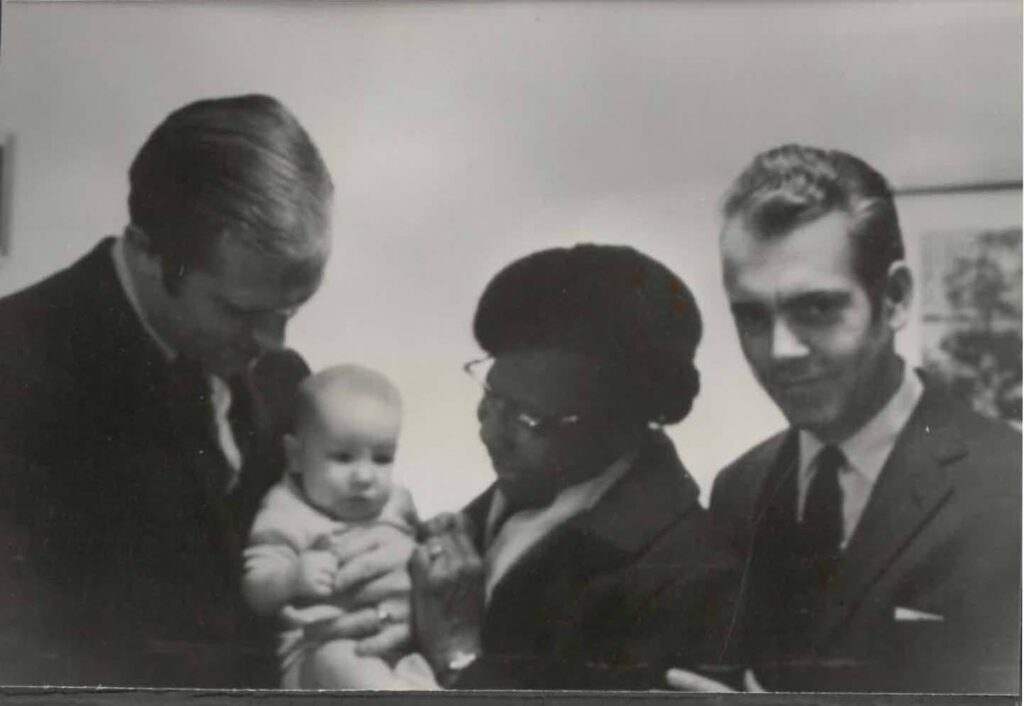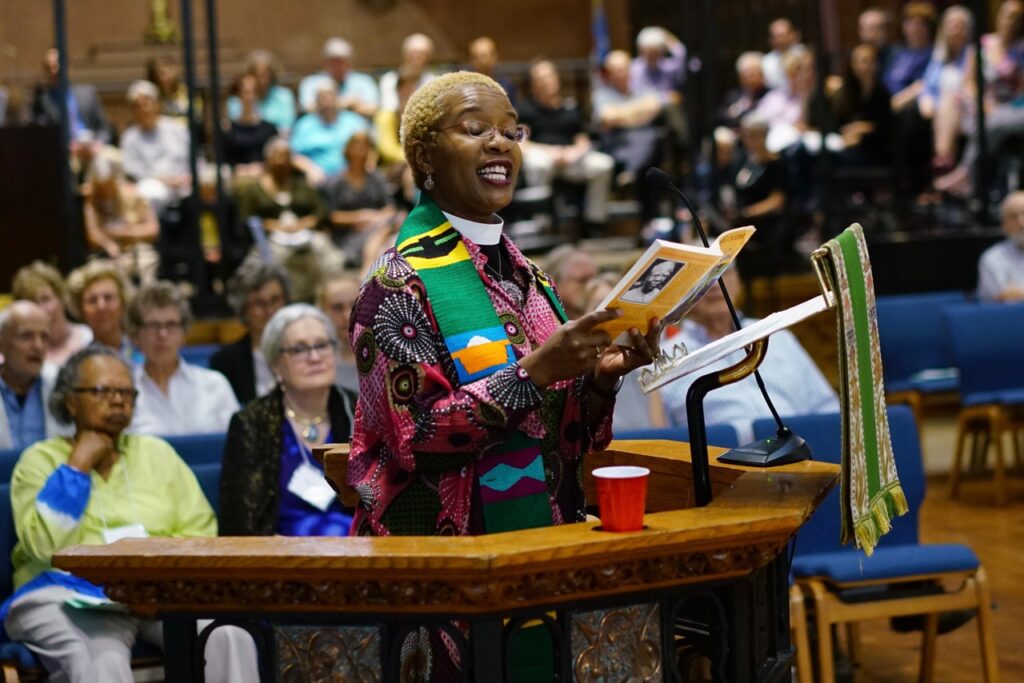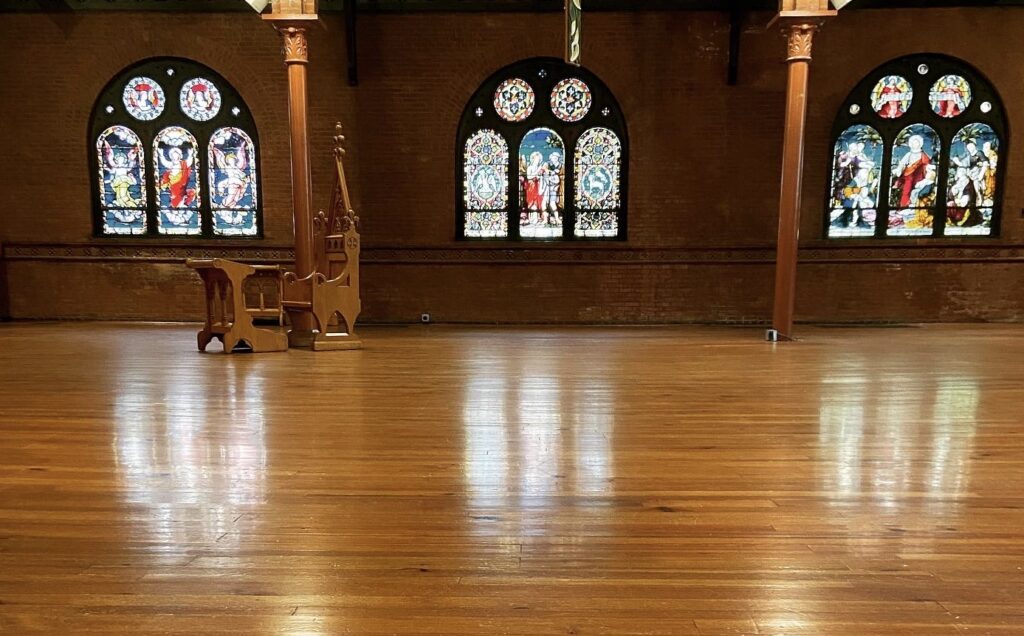Select Quotes
On being a radical
- I probably am one of the most radical voices in this church today but people respond to me with great affection and love because I look like Aunt Jemima. I sound like Sojourner Truth, but they don’t pay any attention to the Sojourner. Confronted by God
- They did not believe that this little fat old lady is a radical. BIOLA
On being Black
- It was my mother, not my father, who impressed on Lois and me that we were as good as anybody else. It didn’t matter that we were Black and poor, we were just as good as anybody else. That was my mother’s religion. Confronted by God
- One of the tragedies of being an oppressed people is that you take on, almost without intending to do it, the evaluation of the controlling community—which meant that Black people had as little sense of their own worth as the whites around them did. … The very fact that you are engaged in proving your worth means that your enemy is winning. Confronted by God
- My classmates … who were Episcopalian always had the fairest skin. They were always the ones whose parents had gone to college and whose parents didn’t have laboring jobs. Episcopalians were always a more privileged group and they just seemed a world apart from me—I never dreamed of associating with those people. Confronted by God
- I grew up with the understanding that homosexuals were not only different, they were also dirty. How Blacks could fall in that trap, since whites thought all Blacks were dirty, is beyond me. Confronted by God
On being a teacher
- I was committed to having my students know they were worthy. … I tried to make a haven in that classroom. Confronted by God
- When I began my second career, people would say, “You taught school for thirty-two years; then you began your ministry.” In my unredeemed way, I would steel myself and reply through clenched teeth, “No, I continued my ministry.” The Dream of God

On being a woman
- I have the maternal look: people are always telling me, “Oh, you look like my grandmother!” I have that look because I am fat. That is a function of racism and sexism, too, because a lot of men don’t hear what a woman has to say. Confronted by God
On asking questions:
- Some people think questions [about the divinity of Jesus] can shake a person’s faith. It can shake a simple faith—and I think a simple faith should be shaken! Confronted by God
On ambiguity:
- The meaning of ambiguity is going in two directions at the same time, which is very distressing for those of us who want to know, “Which is right?” Nothing is more distressing to us than people who see both sides of the issue. The Dream of God
- We resist living with the doubt, incompleteness, confusion and ambiguity that are inescapable parts of life we are called to live. Living by faith means living in unsureness. Confronted by God
- When we work frantically to institutionalize the way we live in tension, we fall into creating another institution, which is what Protestantism has done continually. Confronted by God
- With Jesus, goodness is ambiguous. Jesus did not make little golden rules. Confronted by God
- [The anti-gay stance] is another instance of our making one point of view absolute and not facing up to the possibility of ambiguity. All of life is ambiguous. There is no position which we can point to and claim, “Thus says the Lord.” Confronted by God
On the Bible
- The Bible is being used as if it were an answer book, a rule book, a guide for every hour and every day of our life. Confronted by God
- What we have done is to make an idol out of the Bible, to make it the fourth person of the Trinity. Confronted by God
- We are called to wrestle as St. Paul wrestled, not to let his wrestling take the place of our own. Confronted by God
- Because the Bible is a theological book, it is a book of wrestlings, not a book of answers. The Dream of God
- I do not believe the categories of right and wrong are helpful in approaching scripture because I do not think scripture came out of that way of looking at the world. The Dream of God
- The biblical story is always to be prefaced by, “This is how the faith community that produced the record saw it.” It is never to absolutized as, “This is the way it was.” The Dream of God

On the sacredness of life
- We seldom recall that being religious means that our whole life is ordered that every moment we are aware that we are not the final explanation for ourselves. Confronted by God
- The important question to ask is not, “What do you believe?” but “What difference does it make that you believe?” Does the world come nearer to the dream of God because of what you believe? The Dream of God
On the work of justice
- It is not enough to heal the sick. Heal the systems that make them sick. It is not enough to visit the prisoners. Question the structures that imprison people. Confronted by God
- The institutional Church today as in the time of Jesus rushes to the precipice Him who would proclaim deliverance to the captives and liberty to the bruised. The Calling of the Laity
- A Scripture community has a passion for justice. It is intensely interesting that in our religious life, we have talked much about love, but little about justice. Justice is the most fundamental concept in the Old Testament and is almost ignored in our study of Scripture. Justice is about life in community. We are more individually-minded than community-minded. Religion for many of us is very individualized, private, and personal. We wax eloquent about love and say not a word about justice. Love without justice is sentimentality. BIOLA
On gender roles
- The reason I’ve never had any truck with men who thought men and women had certain roles is that I saw my father do everything to make my life easier for my mother. Confronted by God

Criticisms of the church
- Jesus of Nazareth is a troubling—and troublesome—figure, and it seems to me the church has never known what to do with him. The Dream of God
- Jesus was the fullness of the godhead bodily—he was not the whole of God, only that part of God which could be contained in a body. That is where the church has gone astray—equating Jesus with the fullness of God, making Jesus an object of worship, rather than an expression of God to be followed. The Dream of God
- Jesus did not call human beings to worship him, but to follow him. The Dream of God
- While Jesus preached repentance, the church settled for moralism. Repentance calls us to acknowledge that we have done those things we ought not to have done, and we have not done those things we ought to have done, while moralism decides what is good and what is bad. The Dream of God
- What happens on Sunday morning is not half so important as what happens on Monday morning. In fact what happens on Sunday morning is judged by what happens on Monday morning. If the people who gather for word and sacrament go back to that world unchanged and unchanging, they have participated in empty ritual. The Calling of the Laity
On the roles of clergy and laity
- The temptation to establish a “set apart” ministry of the ordained haunts the church. We have great difficulty grasping the idea that all of us are called, all of us are ministers. Confronted by God
- The separation of the body into clergy and laity was not intrinsically sinful. … The sin lay in what we did with the division, assigning to one part the designation that belonged to the whole people of God—holiness. Baptism was no longer all that was necessary to identify the chosen. We had to pile on ordinations and consecrations. The Dream of God
- The lay person’s primary function is out there in the world. There is a problem when the church becomes the primary focus of their lives. BIOLA
- There are no second-class citizens in the household of God. Religious authority comes with baptism, and it is nurtured by prayer, worship, bible study, life together. The Calling of the Laity
- Clergy are called to be rabbis. Rabbis do not profess to have any more spiritual genius than the congregation; they merely profess to have the learning. Confronted by God
- Laypeople err in the direction of idolizing institutions by the deference they pay to clergy. Confronted by God
- We have turned the whole thing upside down. Instead of the structures being tools to help the people, the people became subservient to the structures. Confronted by God
- When laypeople say about their religion, “Well, the clergy know more about it, let them do it,” then you tip the balance of power to the institutional church. Laypeople then say, “Well, who cares about the institutional church?” and then go off to their jobs in organizations where that same kind of institutionalization has taken place. Confronted by God
On the responsibility of lay people
- Lay people need to be experts, both in their own vocational area and in theology. Confronted by God
- When clergy march on picket lines, as clergy, does that empower lay people, or does it relieve lay people of their necessity to confront the powers and principalities? The Calling of the Laity
- Although the Bible was put into the language of the laity, the laity still would not accept the responsibility for learning how to use it. Confronted by God
On vocation
- I am increasingly convinced that the biblical injunction to “go into all the world and preach the gospel to all nations” has been narrowed from our Lord’s broad vision to just a churchy activity. Confronted by God
- I define ministry as service in response to the dream of God, the restoration of the good creation that God brought into being at the beginning and that “groans in travail” as Paul put it, for the people of God to wake up to the reason why they are called. The Dream of God